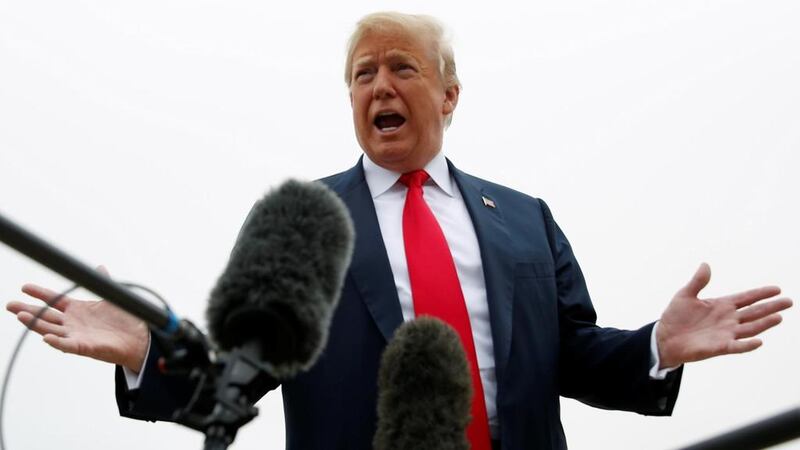After weeks of threatening to do so, on Thursday US President Donald Trump announced tariffs on imports of steel and aluminium from Mexico, Canada and the European Union.
The total value of trade of these items stood at $23 billion last year.
From the very next day, duties of up to 25 per cent were being added to steel and aluminium coming in from the US’s close allies.
Mr Trump's decision was doubtless bolstered by a strong economy at home, with earnings up and unemployment at its lowest since 2000, and part-motivated by the upcoming midterm elections in the US.
By applying tariffs to even the nations and communities historically allied with the US, he is conveying to workers at home that they are his principal priority and that he is willing to alienate the world to protect their interests.
But is he? The trouble with protectionism is that it ends up hurting the very people in whose name barriers to trade are erected.
Trade wars create a ripple effect; manufacturers and retailers will seek to ease the budgetary burdens created by new tariffs by passing on the cost to consumers and workers.
As Christine Lagarde, the chief of the International Monetary Fund, said in a tweet in reaction to Mr Trump's announcement: "If trade is massively disrupted, if the level of trust among economic actors is severely damaged, those who will suffer most are the poorest people".
Mr Trump’s trade war has compelled Washington’s closest friends to retaliate with sanctions of their own. The EU has published a 10-page list of tariffs for US products ranging from Harley-Davidson motorbikes to bourbon.
Canada and Mexico have produced their own list of tariffs targeting US exports of food, drink, steel and aluminium.
It is not clear what precise impact Mr Trump’s tariffs will have on this region’s trade relations but in a highly integrated global economy, everyone suffers when the US embraces protectionism.
If Mr Trump is willing to raise tariffs against Canada and the EU, is any nation safe? Such anxiety cannot be good for global trade.
This is why the EU and Canada have filed complaints with the World Trade Organisation challenging the legality of Mr Trump’s tariffs – and it is why the UK, currently engaged in an acrimonious divorce with the EU, stood in solidarity with Brussels.
British Prime Minister Theresa May, realising that no nation is immune from Mr Trump’s harsh measures, is rushing to build bridges.
The message of this united front, in the words of France’s Finance Minister Bruno Le Maire, is unambiguous: Mr Trump’s tariffs are “legally unacceptable, politically unfair and economically dangerous”.
The world is forging an alliance centred on free trade and the US already looks isolated.
Mr Trump’s rhetoric notwithstanding, the future for the men and women in whose name he has initiated this trade war may be rather grim.





